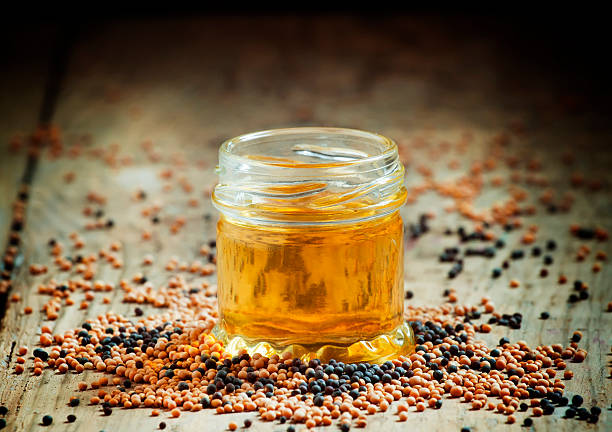Cold-Pressed Virgin Coconut Oil vs Regular Coconut Oil: What’s the Difference?

Coconut oil has long been a household favourite, from traditional Ayurvedic rituals to modern kitchens and beauty routines. But with so many varieties on the market today, ‘cold-pressed’, ‘virgin’, ‘refined’, ‘organic’, and even ‘fractionated’, crowding the market, it’s easy to wonder: What truly sets cold-pressed virgin coconut oil apart from regular coconut oil?
Let’s explore the process, purity, and Ayurvedic value that make this natural oil a cornerstone of holistic wellness.
What Is Cold-Pressed Virgin Coconut Oil?
Cold-Pressed Virgin Coconut Oil (VCO) is the purest and most natural form of coconut oil, extracted directly from fresh coconut meat rather than dried copra. The term cold-pressed refers to the mechanical extraction of oil at temperatures below 49°C, ensuring that natural enzymes, vitamins, and antioxidants remain intact.
Meanwhile, the term virgin signifies that the oil has not undergone any refining, bleaching, or deodorizing. It retains its original aroma, flavor, and nutrient profile exactly as nature intended.
This gentle method contrasts sharply with industrial heat-based extraction, which can degrade nutrients and produce a flatter taste. The result is a light, aromatic oil that nourishes from within, ideal for both dietary and cosmetic use.
Read the complete Guide to Cold-Pressed Virgin Coconut Oil—>
Cold-Pressed vs Expeller-Pressed Coconut Oil
While both processes are mechanical, the main difference lies in temperature.
Cold-pressed oil is extracted without the application of heat, thereby preserving its antioxidants, polyphenols, and delicate aroma. Expeller-pressed oil, on the other hand, uses high-pressure friction that generates heat, slightly diminishing the nutrient content and imparting a roasted flavor to the oil.
From an Ayurvedic perspective, cold-pressed coconut oil is considered Sattvic, cooling, pure, and nourishing to the body and mind. In contrast, the heat generated in expeller pressing gives it a slightly Rajasic quality, making it more warming.
For internal use, skin, and hair care, cold-pressed oil is the superior choice.
What Are the Different Types of Coconut Oil?
Coconut oil is not one-size-fits-all. Each type varies in extraction method, purity, and purpose:
1. Cold-Pressed Virgin Coconut Oil
Extracted below 49°C from fresh coconut meat. Retains nutrients, aroma, and natural enzymes. Ideal for Ayurveda, health supplements, and beauty care.
2. Refined Coconut Oil (RBD)
RBD stands for Refined, Bleached, and Deodorized. Made from dried copra and processed to remove odor, color, and impurities. Neutral in flavor and high in smoke point, but lower in nutrients.
3. Hydrogenated Coconut Oil
Hydrogen is added to solidify the oil and extend shelf life. However, this process creates trans fats, which are harmful to heart health and best avoided.
4. Centrifuge-Extracted Coconut Oil
Coconut milk is spun at high speed to separate pure oil. This produces an extremely light, aromatic, and high-quality variant often used in premium skincare and baby products.
5. Organic Certified Coconut Oil
Made from coconuts grown without pesticides or synthetic fertilizers. Certified organic versions may be virgin or refined, but always chemical-free.
6. Fractionated Coconut Oil (MCT Oil)
A processed form where long-chain fatty acids are removed, leaving medium-chain triglycerides (MCTs) like caprylic and capric acid. It remains liquid even in cooler climates and is popular in keto diets and cosmetic formulations.
How Is Cold-Pressed Virgin Coconut Oil Made?
The process of making cold-pressed virgin coconut oil is simple, natural, and nutrient-preserving, a beautiful example of technology aligning with tradition.
1. Selection of Fresh Coconuts
Mature, healthy coconuts are chosen and husked. The coconut water is separated, and the fresh white meat (kernel) is used.
2. Grating & Low-Temperature Drying
The flesh is finely grated and gently dried below 49°C to reduce moisture without harming nutrients.
3. Cold Pressing / Wooden Extraction
The grated coconut is pressed in a mechanical or traditional kachi ghani wooden press. No external heat or chemicals are used. This retains enzymes, vitamins (like Vitamin E), and antioxidants such as polyphenols.
4. Natural Filtration & Settling
The extracted oil is allowed to settle naturally, separating the pure oil from water and residue. It is then filtered to yield clear, aromatic virgin oil.
5. No Refining, Bleaching, or Deodorizing
Unlike commercial oils, cold-pressed coconut oil is not chemically treated, preserving its delicate fragrance, taste, and therapeutic potency.
Traditional Alternatives
-
Fermentation Method: Coconut milk is extracted and fermented naturally for 24–36 hours, separating the oil without heat.
-
Centrifuge Method: Milk is spun at high speed to extract light, transparent oil.
In Ayurvedic terms, such oil is Sheetala (cooling), Snigdha (unctuous), and nourishing. It balances Pitta and Vata doshas ideal for hot climates, inflammatory conditions, and restorative therapies.
What Is the Difference Between Cold-Pressed and Regular Coconut Oil?
The difference lies primarily in processing, nutrition, and purity.
Cold-pressed virgin coconut Oil is derived from fresh coconut meat, extracted below 49°C, without heat or chemicals. It retains natural lauric acid, MCTs, antioxidants, and its distinctive coconut aroma. It’s nutrient-dense and ideal for cooking, skincare, and wellness.
Regular Coconut Oil, however, is made from dried copra using high heat or solvents. It’s then refined, bleached, and deodorized (RBD process). While stable for frying and long-term storage, it lacks the natural antioxidants and flavor that make virgin oil therapeutic.
|
Feature |
Cold-Pressed Virgin |
Regular (RBD) |
|
Source |
Fresh coconut meat |
Dried copra |
|
Processing |
No heat, no chemicals |
High heat, chemical refining |
|
Aroma |
Natural coconut scent |
Odorless |
|
Nutrients |
Rich in lauric acid, MCTs, and antioxidants |
Reduced nutrient value |
|
Use |
Hair, skin, medium-heat cooking |
Deep frying, industrial food use |
In short, cold-pressed oil nourishes refined oil endures. Choose based on your purpose.
What Are the Benefits of Cold-Pressed Virgin Coconut Oil?
Ayurvedic Perspective
In Ayurveda, coconut oil is revered as madhura (sweet), sheetala (cooling), and snigdha (nourishing). It is the oil of choice for Pitta and Vata body types, pacifying inflammation, dryness, and restlessness.
Used in traditional therapies such as Abhyanga (massage), Nasya (nasal oiling), and Shirodhara (head oiling), it calms the nervous system and rejuvenates tissues. It’s also the base oil for many Ayurvedic medicated formulations like Brahmi Taila and Murivenna.
Modern Science Perspective
1. Heart & Lipid Health
Studies show that virgin coconut oil can raise HDL cholesterol levels, supporting cardiovascular balance when used in moderation.
2. Immune Boosting Properties
Lauric acid converts to monolaurin in the body, known for its antiviral and antibacterial properties.
3 . Improved Digestion & Weight Management
MCTs are easily metabolized into energy, reducing fat storage and promoting satiety.
4. Anti-Inflammatory and Antioxidant Action
Cold pressing preserves polyphenols that combat oxidative stress and cellular inflammation.
5. Skin & Hair Nourishment
Topically, it works as a deep moisturizer, improves elasticity, and reduces flaking or dandruff.
6. Cognitive Support
The MCT-derived ketones serve as an alternative energy source for the brain, aiding focus and memory, especially in low-carb diets.
Thus, cold-pressed virgin coconut oil blends Ayurvedic wisdom with modern nutrition, cooling, strengthening, and is deeply restorative.
How to Choose the Best Coconut Oil for Cooking
When buying coconut oil, focus on authenticity, extraction method, and use case.
1. Extraction Method
Always look for cold-pressed or expeller-pressed labels. Avoid “hydrogenated” or “partially hydrogenated” oils, as they contain trans fats.
2. Refinement Level
-
Virgin/Extra-Virgin: Unrefined and nutrient-dense. Best for health and skincare.
-
Refined (RBD): Neutral taste and higher smoke point better for high-heat cooking.
3. Smoke Point & Flavor
Virgin coconut oil has a smoke point of ~350°F (177°C) ideal for sautéing, stir-frying, or baking. Refined oils (RBD) can go up to 400–450°F for deep frying.
4. Source & Certification
Choose oils made from fresh coconuts, preferably organic and non-GMO. Transparent brands mention the region of origin, pressing date, and purity test details.
5. Packaging & Storage
Opt for dark glass jars or food-grade tins to protect from light and oxidation. Store in a cool, dry place. It may solidify in colder climates as a sign of purity.
Quick Tip: Use cold-pressed virgin oil for raw recipes, salads, or medium-heat cooking where nutrition and flavor matter. Use refined oil for high-temperature frying.
Is cold-pressed virgin coconut oil good for skin and hair?
Packed with nutrients, fatty acids, and antioxidants, cold-pressed virgin coconut oil is great for skin and hair.
Benefits for skin
The emollient deeply hydrates skin and locks in moisture; it soothes skin irritations, redness, and inflammation; being cooling in nature, it’s good for sensitive or sun-burnt skin. Lauric and caprylic acid in the oil help to prevent acne and skin infections. Used regularly, virgin coconut oil improves skin texture and brings on a glow.
Massage face and body with the oil about 30 minutes before your shower, or use it as an ingredient in face masks – it adds moisture and enhances skin radiance.
Benefits for hair
Virgin coconut oil penetrates the scalp to nourish follicles and reduce hair fall; it combats dullness and dandruff; its antimicrobial properties will help tackle mild infections; it acts as a natural conditioner, softening hair and giving it a healthy shine.
Warm a small amount, massage into scalp and hair for 5-10 minutes, leave on for 30 minutes, and shampoo. Use 1-2 times per week or as needed. (If your scalp is oily, you may want to use it sparingly.)
Cold-pressed coconut oil is cooling and smooth, balancing Pitta and Vata doshas while nourishing tissues. Avoid excessive use on Kapha-dominant oily skin/scalp, as it may aggravate greasiness.
Conclusion
Choosing the right coconut oil depends on your goals. Cold-pressed virgin coconut oil is best for skin, hair, and medium-heat cooking, thanks to its natural purity and nutrients. Refined oil suits deep frying, while fractionated (MCT) oil fits keto diets and cosmetics. For true Ayurvedic balance and wellness, choose Virgin Coconut Oil from Maharishi Ayurveda. Pure, nourishing, and Sattvic.
FAQs
1. Does virgin coconut oil expire?
Yes, virgin coconut oil expires, but it lasts longer due to stable saturated fats. Unopened, it stays fresh for 1–2 years; once opened, it lasts 6–12 months if stored properly.
2. Can you fry with virgin coconut oil?
Yes for medium-heat frying (up to 177°C). High heat may degrade nutrients, so avoid deep-frying.
3. Is cold-pressed coconut oil better than olive oil?
Both are healthy but serve different purposes.
-
Coconut oil: Cooling, nourishing, stable for Indian cooking, ideal for skin and hair.
-
Olive oil: Better for raw salads and heart-focused Mediterranean diets.
4. How to store virgin coconut oil?
Keep in an airtight jar, away from sunlight and moisture. Solidification in cooler climates is normal and does not affect quality.
Popular Posts

Rheumatoid Arthritis in Ayurveda: Can Detox and Digestion Support Joint Health?
23 Jan, 2026Rheumatoid arthritis (RA) is a widely known joint condition, but did you know that Ayurveda trace...
Read more
Natural Ayurvedic Detox: Gentle Home Remedies
23 Jan, 2026What does natural detox really mean in Ayurveda? Essentially, this practice refers to the elimina...
Read more
Winter Weight Gain and Brain Fog: Ayurveda Explains Why
22 Jan, 2026What’s the trigger for winter weight gain? Why do we often experience brain fog, feel dull and he...
Read more




 Popular Read
Popular Read

















































